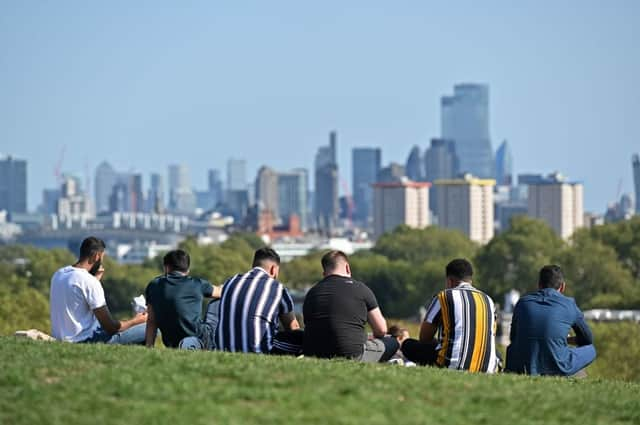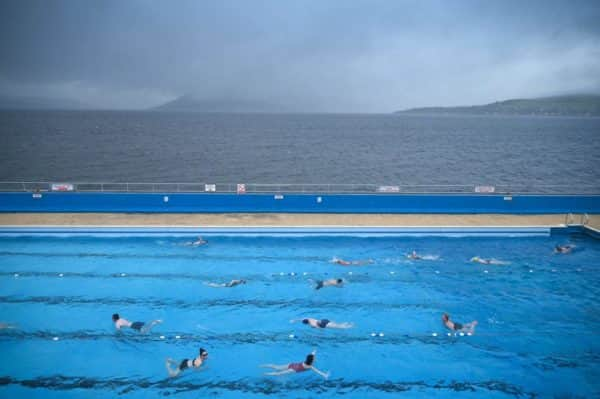More lockdown restrictions will ease in England on 29 March - everything you need to know


A further easing of coronavirus restrictions is due to take place next week (29 March) in England, to coincide with the beginning of the school Easter holidays.
From Monday 29 March, larger groups of up to six people or two households will be allowed to gather in parks and gardens.
Advertisement
Hide AdAdvertisement
Hide AdFrom this point, the “stay at home” order will also end and the Government will instead encourage people to stay local where possible.
Outdoor sports facilities such as tennis and basketball courts are also set to reopen, with organised adult and children’s sport – including grassroots football – able to return.
But progressing along the “road map” will depend on meeting four tests: the success of the vaccine rollout, evidence of vaccine efficacy, an assessment of new variants, and keeping infection rates below a level that could put unsustainable pressure on the NHS.
Here is everything you need to know about it.
What is changing?
From 29 March 2021, the following following easings of lockdown are planned to take place:
Advertisement
Hide AdAdvertisement
Hide AdOutdoor gatherings of either six people or two households will be allowed, making it easier for friends and families to meet outside.
This change reflects the ‘Rule of Six’ that was introduced in 2020, and will apply in private gardens as well as public outdoor areas.
Outdoor sports facilities such as tennis and basketball courts and open-air swimming pools will also be allowed to reopen, and people will also be able to take part in formally organised outdoor sports.
Will I be able to travel?
While the ‘stay at home’ rule is expected to end on 29 March, strict travel restrictions will still apply, with the Government urging people to ‘stay local’.
Advertisement
Hide AdAdvertisement
Hide AdPeople should continue to work from home where they can and minimise the number of journeys they make where possible, avoiding travel at the busiest times and routes.
Travel abroad will continue to be prohibited, other than for a small number of permitted reasons.
The Government says that “given it will remain important to manage the risk of imported variants and protect the vaccination programme,” holidays abroad will not be allowed.
Will the changes actually happen?


Despite – at the time of writing – the proposed changes being but a week away, the Government has been keen to stress that while its road map out of lockdown is “cautious and irreversible”, any changes will be driven by data and science.
Advertisement
Hide AdAdvertisement
Hide AdThat means there is a chance that the planned 29 March easing may not happen, if the four tests are not met.
Those four tests are:
- the vaccine deployment programme continues successfully
- evidence shows vaccines are sufficiently effective in reducing hospitalisations and deaths in those vaccinated
- infection rates do not risk a surge in hospitalisations which would put unsustainable pressure on the NHS
- assessment of the risks is not fundamentally changed by new Variants of Concern
Ministers have stressed in the face of recent news of vaccine supply issues to the UK that the road map plans remain unaffected.
On 19 March, Culture Secretary Oliver Dowden told LBC the road map out of lockdown was not affected by the current vaccine supply issues: “The road map is not affected, so at the moment, we remain on course for the next easing on (March) 29,” he said.
The UK’s vaccination programme continues apace, with the Government announcing on 20 March that half of the UK’s adult population – some 26,853,407 people aged 18 and over – have received their first dose of the Covid-19 vaccine.
Advertisement
Hide AdAdvertisement
Hide AdThe Government has said there will be “one week’s advance notice” of the restrictions that will be eased, so we should expect an announcement on exactly which measure will be lifted on 22 March.
For more information on the Government’s road map out of lockdown in England, go to the website
A version of this article originally appeared on our sister title, the Yorkshire Evening Post